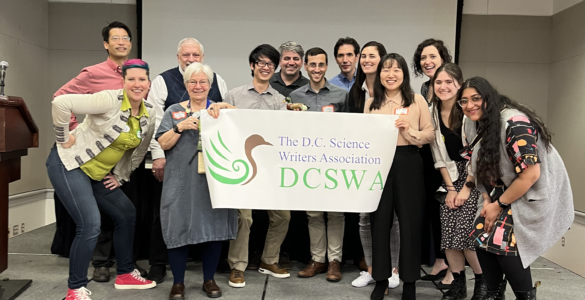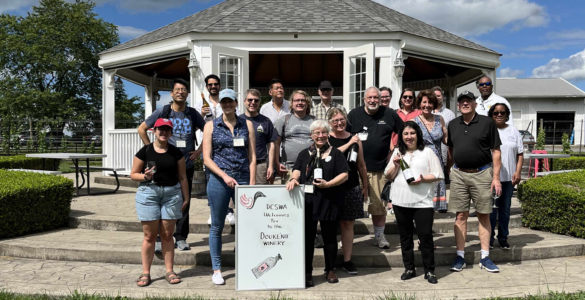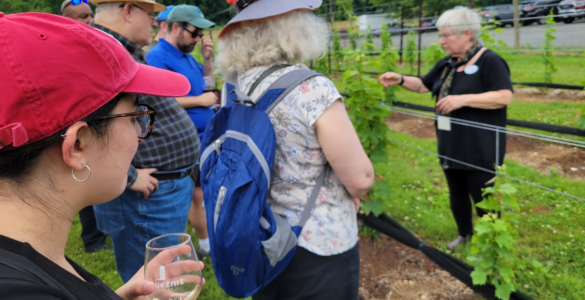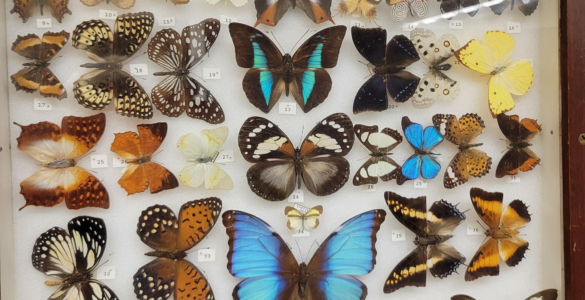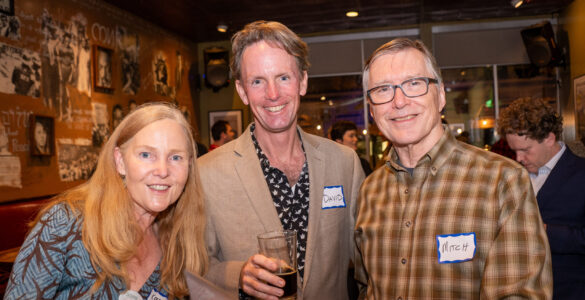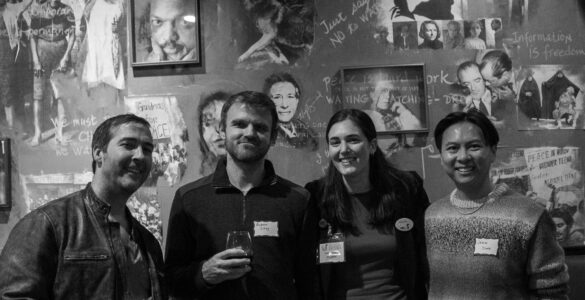Earlier this month, eight people, six of whom were women of Asian descent, were killed in a mass shooting in Atlanta, during a time when Asian American and Pacific Islander (AAPI) communities have experienced rising racism and violence. This latest tragedy is part of a longer, persistent history of prejudice.
The DCSWA Board stands with the Asian American and Pacific Islander communities and denounces violence and racism against people of Asian descent.
We call on our members to commit to racial justice and empowering AAPI communities in science and communication.
Throughout the coronavirus pandemic, politicians have repeatedly used racist terms to scapegoat innocent communities for the virus. Anti-Asian hashtags on social media increased ten-fold after then-President Donald Trump tweeted an offensive hashtag in March 2020, echoing language that he has used repeatedly since. Over the last year, Asian Americans reported the largest year-over-year increase in online harassment compared with other groups, according to a survey by the Anti-Defamation League.
Violence against AAPIs has also escalated. The Center for the Study of Hate & Extremism reported that anti-Asian hate crime spiked by 149% in 2020. From March 19, 2020 to February 28, 2021, Stop AAPI Hate received 3,795 hate incident reports, which likely represents only a fraction of the number of incidents that actually occur. Sexism also compounds upon racism: Asian American women reported incidents 2.3 times more frequently than Asian-American men.
But hate and discrimination against Asians is not new: anti-Asian prejudice has deep roots in longstanding biases that have persisted since the earliest immigrants arrived in America. The Chinese Exclusion Act of 1882 is often seen as the first major law to restrict immigration to our country and, as the name indicates, specifically targeted the Chinese. The Page Act of 1875 effectively barred Chinese women from entry by branding them as sex workers.
Though these laws were eventually repealed, the prejudices underlying them have lingered till today. Asians Americans are often seen as “forever foreigners”, a percieved status that helped justify the Japanese internment during World War II and fueled Islamophobia towards Muslim Americans and prejudice towards South Asian Americans following the 9/11 terrorist attacks.
At the same time, Asian Americans are considered “model minorities”, a stereotype that has been used to drive a wedge between Asians and other historically oppressed groups and fails to accurately represent the diversity of experiences of a heterogeneous population originating from more than 40 Asian countries. Indeed, Asian American groups vary widely in their education and income levels: the group has the highest level of income inequality. Plus, data has shown that despite higher educational attainment Asian Americans continue to face barriers to advancement and may be the least likely group promoted to management or leadership.
We know that many in the DCSWA community have experienced great pain this past year, which is why we must lift one another up in standing against race-based hate in all forms every time we see it. We call on all our members to educate themselves on how anti-Asian racism affects their work and workplaces. These biases appear in both science and in journalism, and it is imperative we acknowledge and address these prejudices within ourselves and the organizations we serve.
As science writers, we must be aware of how racism against Asian-Americans affects scientists. Asian scientists are subject to microaggressions in academic and laboratory environments just as in other workplaces. Asian professors and university instructors are given lower rankings by their students. Asian-American women in STEM careers, who face discrimination due to both race and gender, lag behind other groups on a variety of metrics, including the percentage with tenure. Scientists of Chinese descent in the US face particular concerns of being racially profiled, wrongfully prosecuted, or having their visas revoked.
As communicators, we need to be aware of the many ways the mainstream media failed the shooting victims in Atlanta. Although the gunman deliberately targeted businesses owned by people of Asian descent, the official statement of the police and initial media reports took the shooter’s denials of racial motive at face value and focused on his identity instead of the victims’. These missteps reflect broader journalism shortcomings in covering the AAPI communities, which receive relatively little media attention compared to white Americans, Black Americans, and Latinos. The relative dearth of Asian American faces and voices across many forms of media and entertainment prompted a 2018 New York Times article to ask “Why Do Asian-Americans Remain Largely Unseen in Film and Television?”
We can and must do better: The Asian American Journalists Association Broadcast Advisory Council “urges newsrooms to empower their AAPI journalists by recognizing both the unique value they bring to the coverage of the Atlanta shootings and the invisible labor they regularly take on, especially in newsrooms where they are severely underrepresented.”
We have curated a resource guide for those in need of support or who are interested in improving the diversity of journalism and science communication, becoming an ally, and providing aid to members of the AAPI communities.
As stated in our code of conduct, DCSWA is dedicated to providing a safe and welcoming experience for everyone, regardless of gender, gender identity and expression, sexual orientation, disability, physical appearance, body size, race, ethnicity, age, national origin, or religion. DCSWA does not tolerate harassment of members in any form.
The DCSWA Board will continue to serve all our members and will continue discussing programming and resources around elevating diversity and inclusion. We would especially like to hear from members to guide our next steps forward. Please don’t hesitate to reach out to us via email during this time at president@dcswa.org.
In solidarity,
— DCSWA Board

